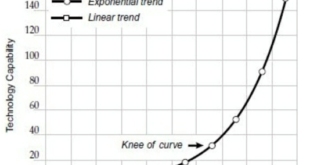People cavil much about Ricardo’s law of association, better known under the name law of comparative cost. The reason is obvious. This law is an offense to all those eager to justify protection and national economic isolation from any point of view other than the selfish interests of some producers or the issues of war-preparedness. —Ludwig von Mises, Human Action Alexander Macris of the Substack blog Contemplations on the Tree of Woe has called attention to Ian...
Read More »The Bombing of Hiroshima: The Crime and the Cover-Up
The real effects of the atomic bomb on Hiroshima were hidden from Americans until the New Yorker published an exposé in 1946. Americans finally were confronted with the truth—even if they didn't want to believe it. Original Article: "The Bombing of Hiroshima: The Crime and the Cover-Up" [embedded content] Tags:...
Read More »Let’s Examine Some REAL Crimes Committed by Presidents
Former president Donald Trump is facing ninety-one criminal charges as he seeks to win back the White House in 2024. The indictments are the latest battle in a roughly six-year crusade against Trump that first sought to remove him from power through the Twenty-Fifth Amendment, then with espionage charges and impeachments, and that now aims to block him from becoming president again. The mantra we hear from those in politics and media who support these efforts is that...
Read More »The Problem with Public Transit
Much of government-owned transportation destroys rather than adds to wealth. The lack of a sound system of economic calculation is to blame. Original Article: "The Problem with Public Transit" [embedded content] Tags: Featured,newsletter
Read More »Deneen’s Common Good Statism
It’s likely that many readers of The Austrian support the free market and also support “traditional” social values, but in Patrick Deneen’s opinion, this is an unstable amalgam. Deneen, a political theorist who teaches at Notre Dame, thinks that the market undermines tradition and that those of us who resist the “woke” Left and want to preserve tradition ought to abandon what he sees as an uncritical devotion to the market. Deneen says that classical and medieval...
Read More »Decentralization Is Not Fascism
Despite its origin in Marxist-syndicalist thought, “fascism” has long been used as a derogatory label for practically anyone on the right wing of the political spectrum. Sometimes the label is warranted, but other times it is used against those who have virtually nothing in common with fascists, such as libertarian capitalists. Progressives are quick to label any kind of economic deregulation and reduction in federal overreach as “fascist.” Want to have a free...
Read More »Mises versus Hayek on the Future of Civilization
Ludwig von Mises and F.A. Hayek, two of the best-known Austrian school economists in the twentieth century, may have followed the same school of thought, but they greatly differed in their work. In consideration of human action, the two men differed in their methodology: Mises advocated for a pure use of reason through praxeology, and Hayek, alternatively, defended the compositive method. In regard to the market process and entrepreneurship, Mises’s and Hayek’s views...
Read More »“National Greatness” Is Not the Appropriate Response to “Wokeism”
Many conservatives, in trying to steer the USA away from "wokeism," fail to understand that their “national greatness” schemes are just as harmful. Original Article: ""National Greatness" Is Not the Appropriate Response to "Wokeism"" [embedded content] Tags: Featured,newsletter
Read More »States Are Dying from Corruption and the Exponential
Technology is the main reason why so many of us are still alive to complain about technology. —Garry Kasparov If I take 30 steps linearly, I get to 30. If I take 30 steps exponentially, I get to a billion. —Ray Kurzweil While world leaders try to decide whether their interests are best served by World War III or some other imposed atrocity, various forces have states targeted for extinction. Chief among these forces is the exponential nature of evolution and...
Read More »France’s Unrest Has Deep Roots. Proposed Immigration Restrictions Will Make Things Worse
The rioting in France is not due to racism nor is it the logical end of immigration. Instead, it is rooted in France's minimum wage and other labor restrictions that lead to unemployment and resentment. Original Article: "France's Unrest Has Deep Roots. Proposed Immigration Restrictions Will Make Things Worse" [embedded content]...
Read More » Swiss Economicblogs.org
Swiss Economicblogs.org





